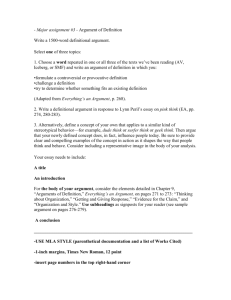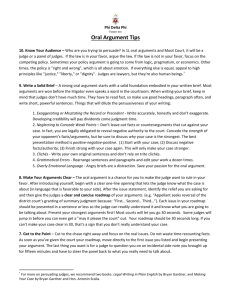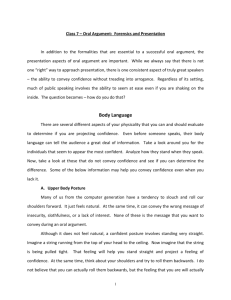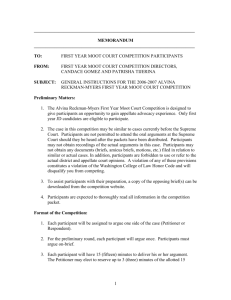Contemporary Federalism Issues - Winter Sports School in Park City
advertisement
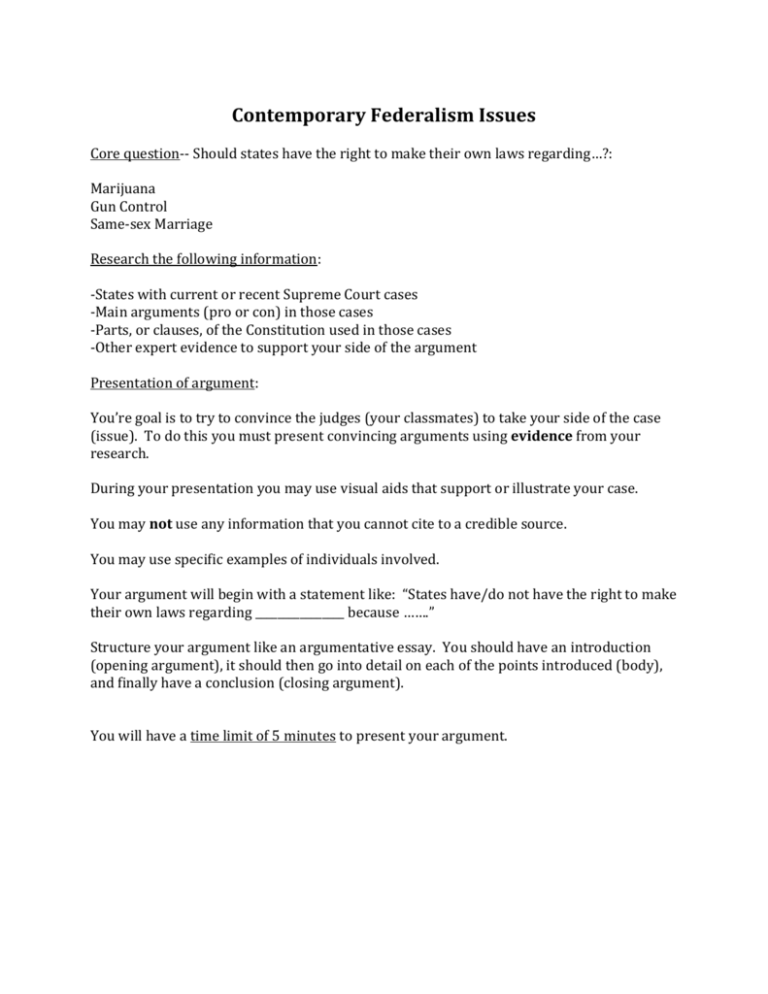
Contemporary Federalism Issues Core question-- Should states have the right to make their own laws regarding…?: Marijuana Gun Control Same-sex Marriage Research the following information: -States with current or recent Supreme Court cases -Main arguments (pro or con) in those cases -Parts, or clauses, of the Constitution used in those cases -Other expert evidence to support your side of the argument Presentation of argument: You’re goal is to try to convince the judges (your classmates) to take your side of the case (issue). To do this you must present convincing arguments using evidence from your research. During your presentation you may use visual aids that support or illustrate your case. You may not use any information that you cannot cite to a credible source. You may use specific examples of individuals involved. Your argument will begin with a statement like: “States have/do not have the right to make their own laws regarding ________________ because …….” Structure your argument like an argumentative essay. You should have an introduction (opening argument), it should then go into detail on each of the points introduced (body), and finally have a conclusion (closing argument). You will have a time limit of 5 minutes to present your argument. Here are some suggestions for lawyers going to the Supreme Court from www.appellate.net II. DELIVERING THE ARGUMENT. A. Substance 1. Introduction. Tell the judges in a couple of sentences how the case reached them, the type of case (e.g., bankruptcy, tax), your position, and what points you plan to cover. 2. Statement of facts. Spend little time in stating the facts unless there is an affirmative tactical goal in doing so (i.e., your case is particularly strong on the facts). The judges are usually familiar with the statement portion of your brief, and there is a real risk of becoming bogged down in factual minutiae and wasting valuable argument time. 3. Focus your argument. Limit yourself to at most three or four crucial points. 4. Keep your main points simple and hard hitting. Judges may miss subtle or rhetorical comments. Keep your points straightforward. 5. Using cases. (a) Limit your case discussion. Many excellent arguments never refer to specific cases. Disquisitions on the holding of cases that the judges haven't read or aren't familiar with can be a real turn-off. Unless the interpretation of potentially controlling precedents is crucial in your case, it is usually more effective to leave analysis of cases to the briefs and devote the argument to conveying the logic and common sense of your position. (b) Don't rely on noncontrolling case authorities. You may refer to the reasoning of inferior courts or courts in other jurisdictions, but don't expect the judges in your case to reach a certain result just because other courts have done so. 6. Using the record. (a) Know the record. Be prepared to answer questions about relevant parts of the record. (b) Stick to the record. Ordinarily, refrain from referring to matters outside of the record such as newspaper articles. However, if a judge asks you to go outside the record, you may do so. Use the following table to organize your research and its relevance to your case. Include information that supports your argument or provides evidence to prove your case. Tell where you got the information so that you can cite the source while making your case. Your sources may include court decisions, Constitutional Amendments, or quotes from experts. Support/Evidence Source






